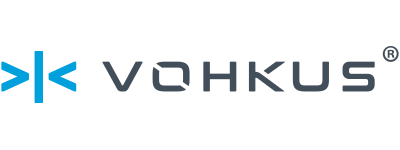Adobe Commerce: Third-Party Module vs Custom Development

Adobe Commerce, formerly known as Magento, is a leading e-commerce platform that allows businesses to create unique and engaging online shopping experiences for their customers. Its flexibility and extensive range of features and capabilities enable businesses to customise their e-commerce solutions according to their specific needs. However, this flexibility can also pose challenges when deciding between using third-party modules or developing custom modules based on unique requirements. In this comprehensive article, we will explore the factors to consider when analyzing third-party modules for an Adobe Commerce website and weigh the pros and cons of custom development to help you make the most informed decision for your business.
Understanding Third-Party Modules and Custom Development
Third-party modules are pre-built extensions developed by independent developers or companies that provide additional functionality to the Adobe Commerce platform. These modules cater to a wide range of e-commerce requirements, such as payment processing, shipping, inventory management, and more. They can be easily installed and configured to work with your existing Adobe Commerce setup.
Custom development involves creating bespoke modules or functionality tailored to your specific business requirements. This approach allows businesses to have full control over the design, features, and functionality of their Adobe Commerce website, ensuring that the solution perfectly aligns with their unique needs and objectives. Custom development may include creating entirely new modules or modifying existing third-party modules to meet specific requirements.
Features and Functionality
Third-party modules typically offer a variety of pre-built features designed to cater to common e-commerce needs. These modules are created by experienced developers who have expertise in Adobe Commerce, ensuring compatibility and functionality. However, third-party modules may not always provide the level of customization or unique features that a business requires.
When developing custom modules, you have complete control over the features and functionality you want to implement. This allows you to create a tailored solution that perfectly aligns with your business needs, giving you a competitive advantage. Additionally, custom modules can be designed to seamlessly integrate with your existing systems and processes, ensuring a cohesive and streamlined user experience.
Cost Analysis
One of the main advantages of using third-party modules is that they typically have lower upfront costs compared to custom development. Purchasing a ready-made module can save you the expense of hiring developers to create a custom solution. However, it's essential to consider the long-term costs of using third-party modules, including possible maintenance fees, updates, and compatibility issues.
Developing a custom module can be more expensive upfront due to the need to hire developers and invest time in the design and development process. However, this investment can pay off in the long run, as custom modules often require less maintenance and updates. Furthermore, custom modules are typically designed to grow and evolve with your business, ensuring that they remain relevant and effective as your needs change.
Explore More with DWS
Time and Resources
Implementing a third-party module is usually quicker than developing a custom solution, as the module is already developed and tested for compatibility. This can be advantageous for businesses looking to quickly deploy new features or functionality. However, it's important to remember that third-party modules may still require customization to meet your specific needs, which can add to the overall implementation time.
Developing a custom module requires more time and effort than implementing a third-party solution. The design, development, and testing phases can be time-consuming, potentially delaying the rollout of new features or functionality. However, investing this time upfront can ensure a more tailored and effective solution that aligns with your business objectives.
Resource Allocation
When considering custom development, it's important to evaluate the availability of in-house resources, if you have an internal development team, or the need to hire external developers. Developing custom modules may require specialised skills, and dedicating resources to this process could impact other projects or priorities. On the other hand, third-party modules generally require less resource allocation, as they come pre-built and ready for integration.
Flexibility and Scalability
While third-party modules offer a range of features, they may not always provide the flexibility needed to adapt to your specific requirements. Customizing third-party modules can be challenging depending on how this has been created, and the level of customization may be limited by the module's design.
Custom development offers a high level of flexibility, as you can design and build modules based on your unique requirements. This flexibility ensures that your e-commerce solution is fully tailored to your business needs and can adapt as your business grows and evolves.
Scalability is an essential factor to consider when choosing between third-party modules and custom development. Custom modules can be designed with scalability in mind, allowing your e-commerce solution to grow with your business. Third-party modules, on the other hand, may have limitations in terms of scalability and may require additional customization or development to accommodate business growth.
Support and Maintenance
Support for third-party modules varies depending on the developer or company that created the module. Some developers may offer comprehensive support and regular updates, while others may provide limited assistance. It's crucial to research the level of support offered and factor this into your decision-making process. If the support is limited and you encounter critical issues, this could impact your company's sales and reputation.
When developing custom modules, you have more control over the support and maintenance process. Your in-house team or external developers can provide dedicated support, ensuring that any issues are promptly addressed and resolved. Additionally, custom modules can be updated and maintained according to your specific requirements and timelines. This could, however, increase the cost aspect with regards to ongoing maintenance and updates.
Making the Decision
Before making a decision between third-party modules and custom development, it's essential to thoroughly assess your business needs and objectives for each feature and requirement. Determine the level of customization required and whether a third-party module can fulfill your requirements or if custom development is necessary for your unique situation.
The choice between third-party modules and custom development for your Adobe Commerce website is a critical decision that requires a comprehensive understanding of your unique business requirements. By considering the factors outlined in this article, including features, cost, time, flexibility, scalability, and support, you can make an informed decision that will best serve your e-commerce needs and contribute to the success of your business.
Sometimes making the best decision isn't an easy straight forward process, sometimes you need an expert to help guide you through the process. Developed With Style can help you with any aspects of your e-commerce journey you may need assistance with. Get in touch to discuss requirements and see how we can help dive your vision through to success.
Related Posts
See how our digital solutions have helped businesses like yours move forward with confidence. Don’t just take our word for it, hear directly from the clients who’ve experienced the difference.
"Having successfully worked on a previous project with DWS, we were happy to partner with them again for our e-commerce transformation. From the outset, DWS demonstrated a keen understanding of our unique requirements and challenges. Their expertise in Adobe Commerce, combined with a truly collaborative approa...
"Partnering with DWS has been a massive asset to Vohkus, providing us with development expertise, training and DevOps for Magento 2. From the outset it was evident that they had multiple developers each capable of handling many of the complex requirements we could not complete ourselves. Their commitment to tr...
"Have been working with Lee from DWS for number of years. Lee has an unrivalled knowledge of all things Magento. During our migration from Magento 1 to Magento 2, he helped to shape the design and build of the new platform, and his expertise was instrumental to the success of the project. As well as offering o...
Ready to start or take your e-commerce to the next level? Every step forward matters, and we’re here to help you make it count. Get in touch with DWS to see how we can turn your digital goals into reality. Let’s shape and grow your e-commerce journey... together.





